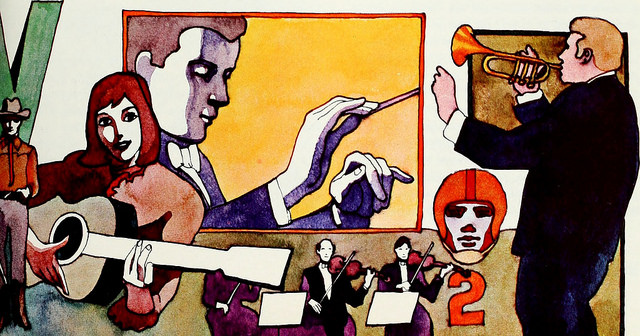 EMHIS-member Dr Tony Stoller successfully defended his thesis at the end of April.
EMHIS-member Dr Tony Stoller successfully defended his thesis at the end of April.
The thesis sets out the first comprehensive, longitudinal, narrative history of classical music broadcast on UK radio in the second half of the 20th century, relating that to the changing political, social and economic circumstances of those decades. Beginning before the launch of the BBC Third Programme, and continuing until after the launch of the commercial station Classic FM, it describes and analyses the wide range of services which offered this style of music, describing a far broader spectrum than previous discourse had identified.
These 50 years were characterised by a series of high points, when classical music services were broadcast across a number of different channels, offered highbrow and middlebrow content, provided links between elite and popular output, and were accessible to a broad range of potential listeners. Each of those then provoked a reaction from the self-appointed intellectual elite, concerned at the diminishing of what they regarded as ‘high art’ in the interest of mass appeal, and reflecting the class-based assumptions of British society during these years.
Across the period, the quantity of classical music broadcast increased from less than 20 hours a week in 1945 to nearly 240 hours a week by 1995, providing music by an increasing number of composers, but remaining centred in the classical music canonic repertoire arising initially from the First Viennese School of composers: Beethoven, Mozart, Haydn and Schubert. The potential audience remained surprisingly constant, at between 5 and 6 ½ million listeners, when services were offered which were accessible to a wider public.
Classical music radio was not the sole preserve of the BBC. There was significant output from the Independent Local Radio stations between 1975 and 1989, while a full scale classical music station funded by advertising – Classic FM – had a major impact, coincident with the recasting of BBC Radio 3 in the early nineties and beyond.
The pattern of classical music radio throws light also upon the place of culture in UK society, on the relationship between highbrow and popular culture in the UK, on the relevance of biography in writing media history and on the nature of public service radio broadcasting. But it is not just an academic signifier; it is primarily a compelling new story, adding to the understanding of broadcasting history in the UK, and of post-war British society as a whole.
